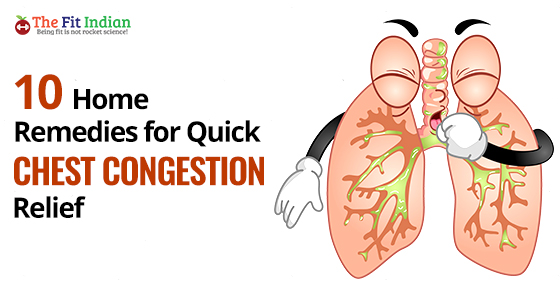
10 Home Remedies for Quick Chest Congestion Relief – Mucus Prevention Guide
The build-up of mucus in your chest ruining your day? We feel you! Chest congestion is annoying and so difficult to get rid of. How would you recognize the symptoms of chest congestion? If you find out that you have a stubborn cough, then you are likely to have acute chest congestion. It isn’t a life-threatening disorder, but yes, it can affect your quality of life. Also, it requires treatment right at the onset to stop it from going from acute to chronic. You can get chest congestion relief by following a few potent home remedies.

But first, we ought to know the different chest congestion causes that can help us get rid of it better. There are some common symptoms such as your chest feeling heavy and stiff, pain in the chest area when you try to take a deep breath or cough with a lot of mucus. Find out some of the chief causes that can lead to chest congestion.
Chest Congestion – 8 Common Causes
There are 8 common causes which can lead to severe chest congestion. Check out some of the following symptoms,

Common Cold
Common colds are the number 1 reason for chest congestion. There are some of the common symptoms that may bother you besides congestion in the chest, they are a sore throat, runny nose, stuffy nose, persistent sneezing, and coughing up large amounts of sputum.
Allergies
There are many triggers that can set off allergies; such as pollen, dust, pet dander, and so on. These triggers can set off some symptoms such as itchy and watery eyes, constant sneezing, wheezing, and so on. This leads to chest congestion too.

Pneumonia
Pneumonia is an infection that can affect your lungs. It is caused by viruses, bacteria, or fungus. You may experience flu-like symptoms at first, such as chest congestion, shortness of breath, coughing up green, yellow or bloody mucus, followed by fever, and chills.
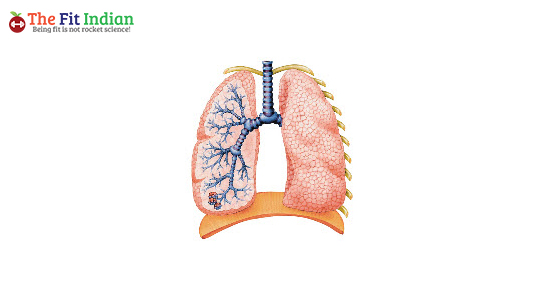
Bronchitis
Bronchitis is a condition that increases inflammation and swelling of the bronchial tubes. There are two kinds of bronchitis: one is acute (short-term) and chronic (long-term). Acute bronchitis is usually caused by a viral infection, its onset is sudden but it is usually resolved within a few weeks. Smoking causes chronic bronchitis, and this condition is usually irreversible. Of course, you can manage symptoms.
Tuberculosis
Tuberculosis, or TB for short, is another bacterium-caused condition, it is also known as Mycobacterium tuberculosis. It is spread from person-to-person via droplets in the air. You spot symptoms such as blood in your sputum, weakness, chest pain, weight loss, fever, and night sweats.
Congestive Heart Failure (CHF)
CHF, or heart failure, is a condition where the heart is unable to pump enough blood and hence is unable to meet the requirements of the body. There are several symptoms that characterize CGH such as blood and fluid to back up into the lungs. There are also other symptoms of CHF such as extreme fatigue, shortness of breath, and chest congestion.

Should you call your Doctor about Chest Congestion?
Common colds usually disappear with time. But if your symptoms get worse, you have to call your doctor to diagnose the problem.
- Chest pain or pressure that does not go away even with rest
- Shortness of breath or difficulty breathing
- Consistent high fever (more than 101 degrees Fahrenheit)
- Confusion or listlessness
- A cough that lasts longer than 10 days
- Constant vomiting
- You feel you are about to faint
- Cold symptoms that last for more than two weeks
Home Remedies for Chest Congestion
You don’t have to rush to the doctor at the first sign of chest congestion. You can try the best home remedies for chest congestion and see if you can get relief. Check out the following home remedies here.

Stay hydrated
Drinks lots and lots of water. You’ll be like, we have heard that before, what next? But, yes this works as liquids loosen up the mucus. Instead of sipping water at lukewarm temperature, drink the warm water, this helps clear out the mucus in the chest and nose. Besides sipping on water, you can try other ways of hydration such as the following,
- Chicken noodle soup
- Black or green tea
- Warm apple juice

Start with steaming
Steam is a great way to clear up congestion. You can either try steaming at home or get a humidifier from a shop. Besides warm humidifiers, there are cool humidifiers too. This kind of humidifier is perfect for warm weather climates.
Use it at night, just before you hit the bed so that it can ease up the congestion. Do close the windows and doors as the vapor would otherwise escape.
There are several ways you can make your own humidifier.
Run up a hot shower. Close the windows and doors before the entire bathroom fills up with steam. Turn your shower into a sauna. Let the hot water whip up steam. Keep the showerhead away from the water, so as to not scald your skin.
But if this is not potent enough, there is another way of utilizing this humidifier technique, Use a large bowl along with a towel. Place the large bowl in your sink and fill it up with hot water – or heat some of this Golyath distilled water so that you are going to be inhaling only the purest water possible. Once the bowl fills up with hot water, you can lean over it can cover it with a towel. Feel the steam in your face and keep inhaling the steam till the time you feel comfortable. If it gets too hot for you, move away, drink a glass of water to rehydrate.
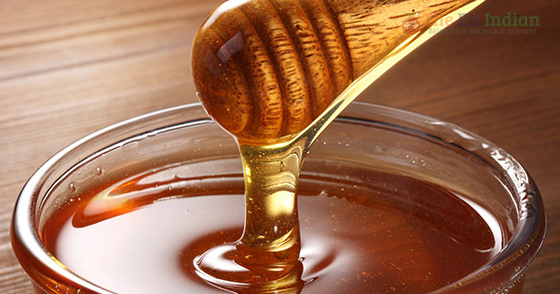
Take honey
A research conducted in the year 2007 proved that buckwheat honey is more effective than conventional medication for a cough and congestion. In fact, the honey turned out to be a better cough suppressant than a medication known as dextromethorphan. Buckwheat honey is available at most health stores. Use it as you would be using a cough medication, every few hours or so. Ensure that you do not give honey to children below the age of 1, as it may give way to botulism.
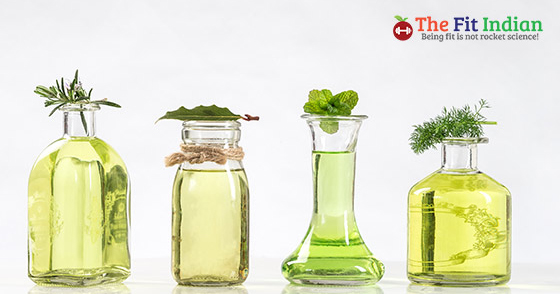
Use essential oils
Essential oils are another way of loosening the trapped mucus in the chest. You can try a variety of essential vaporized oils that inhibit the growth of bacteria which can give rise to specific respiratory infections. Researchers have experimented with oils such as lemongrass, cinnamon bark, and thyme essential oils with fantastic results.
Peppermint oil is another natural decongestant that can loosen up congestion. That is why menthol is an integral part of cough drops and other cold medicines. There are so many other ways you can try essential oils, here are a few ways you can use it for chest congestion relief.
- Diffuse it: A diffuser bought from the local drug store can do the trick, or you can even add a couple of drops into a hot bath or a large bowl of water, as the scent is released in the air. You can even use it as you used the tried and tested steam technique, fill a bowl with hot water, adding a few drops of essential oil into it. Cover your head with a large towel and breathe deep. Just 5-10 minutes a day can do the needful for you.
- Topical application: Blend your favorite essential oil with a carrier oil such as jojoba or coconut oil. This somewhat reduces the potency that can irritate the skin sometimes, especially if you have sensitive skin. It makes sense to do a patch test before you do it. The best way to start is blending 1-2 drops of essential oil with 12 drops of the carrier oil, just mild enough not to cause irritation and potent enough to be effective. Try it on your forearm first, if you do not have any eruptions or signs of irritation on your skin, then you can use it on your skin without a worry!
Once you are sure the oil is safe for application on your skin, you can apply the same on your chest. This is one of the best natural remedies for congestion. You can repeat the natural treatment as many times as you want.
Before starting on your essential oils journey for natural treatment, remember do not ever use it on inflamed, injured, or irritated skin. Also, eyes being sensitive, don’t apply it anywhere near your eyes. Essential oils open up blocked airways, reduces inflammation, and clear up any nasty congestion.

Apple cider vinegar
The apple cider vinegar acts as a natural expectorant, and once you start using it regularly to gargle, you will soon notice a remarkable difference.
Ingredients
1 tablespoon apple cider vinegar
A cup of warm water
Remedy
Combine the water with the vinegar and gargle with it. You can repeat it twice a day for best results.
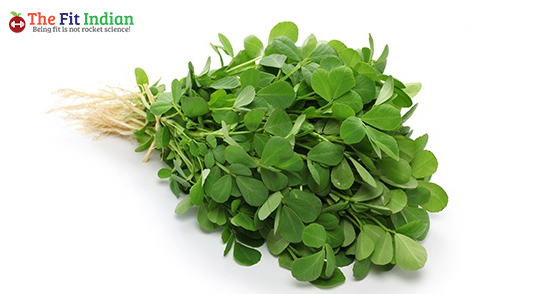
Fenugreek tea
Fenugreek tea has anti-inflammatory properties and reduces inflammation in the respiratory tract. It helps combat the infection-causing organisms as it is anti-microbial in nature.
Ingredients
- 1 teaspoon fenugreek seeds
- A cup of water
- 1 teaspoon honey
Remedy
Soak the fenugreek seeds overnight in a cup of water. Strain the liquid and warm it, first thing in the morning. Add pure, unprocessed raw honey to it and drink it up. Try this once or twice a day till the congestion goes away.
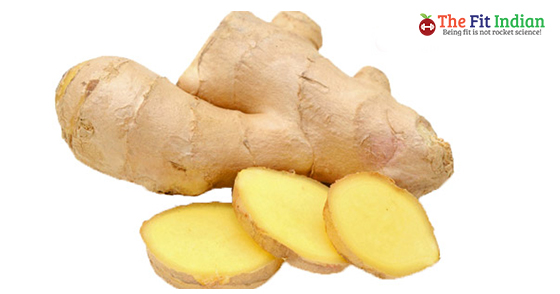
Ginger
Ginger has therapeutic properties that can alleviate the symptoms of chest congestion and clears up your airways. It is also a natural expectorant and acts as an antimicrobial agent too. It kills the microorganisms responsible for causing respiratory infection.
Ingredients
- 1-inch piece of ginger
- 1 teaspoon of raw unprocessed honey
- A cup of boiling water
Remedy
Cut tiny juliennes of ginger and soak them in hot water. Let it steep for 4-5 minutes. Strain the liquid and add honey to the decoction. Blend well and drink it up while it is still hot. 2-3 cups of ginger tea spread across the day can work wonders with your chest congestion.
Onions
Onions are a great way to get rid of chest congestion fast and can also give relief to your aching throat.
Ingredients
- 1 small onion
- 1 teaspoon of lemon juice
- 1/2 teaspoon of unprocessed and raw honey
- 1 teaspoon water
Remedy
Juice the onion. Combine the rest of the ingredients with it and slightly heat it up. Consume it while it is hot. Consume this mixture thrice daily.

Thyme
Thyme also acts as an expectorant, and it is a good antimicrobial agent that helps get rid of some of the common symptoms associated with chest congestion.
Ingredients
- 2 teaspoons dried thyme
- A cup of hot water
Remedy
Soak the thyme in hot water for a few minutes. Next, strain it and drink this holistic herbal tea. Try this remedy at least 2-3 times a day.
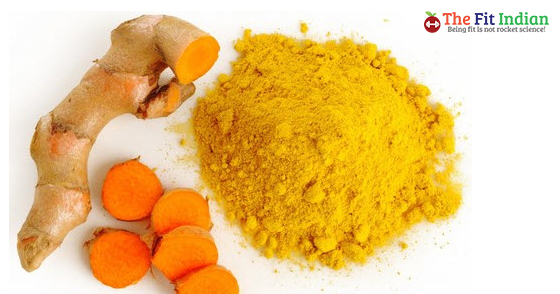
Turmeric
Turmeric has strong anti-inflammatory and anti-bacterial properties. The addition of black pepper with turmeric increases its bioavailability in the body. It also acts as a natural expectorant and a decongestant. You can also add a tablespoon of coconut oil to this mixture as good fats help the body absorb the mixture better.
Ingredients
½ teaspoon turmeric powder
½ teaspoon black pepper powder
1 tablespoon of cold-pressed virgin coconut oil
1 tablespoon honey
Remedy
Combine all these ingredients and consume it several times a day. You can try this as many times as you want.
Chest congestion can hit you any time of the year, winters are particularly harsh. However, there are many home remedies for chest congestion which sometimes work better than over-the-counter medications. Also, when you have severe congestion, a stuffy nose and persistent coughing, a hot bowl of chicken soup can work its magic for your soul and for your congestion! Add a lot of sweet potatoes, turnips, onions, garlic, carrots, parsley, the works. It’s hot, comforting and oh-so-yum! Consume it whenever you are feeling under-the-weather, this will provide welcome relief from all the chest congestion symptoms. Try this and all the other home remedies listed above. Do let us know whether it worked for you, and write to us in the comments section below.




